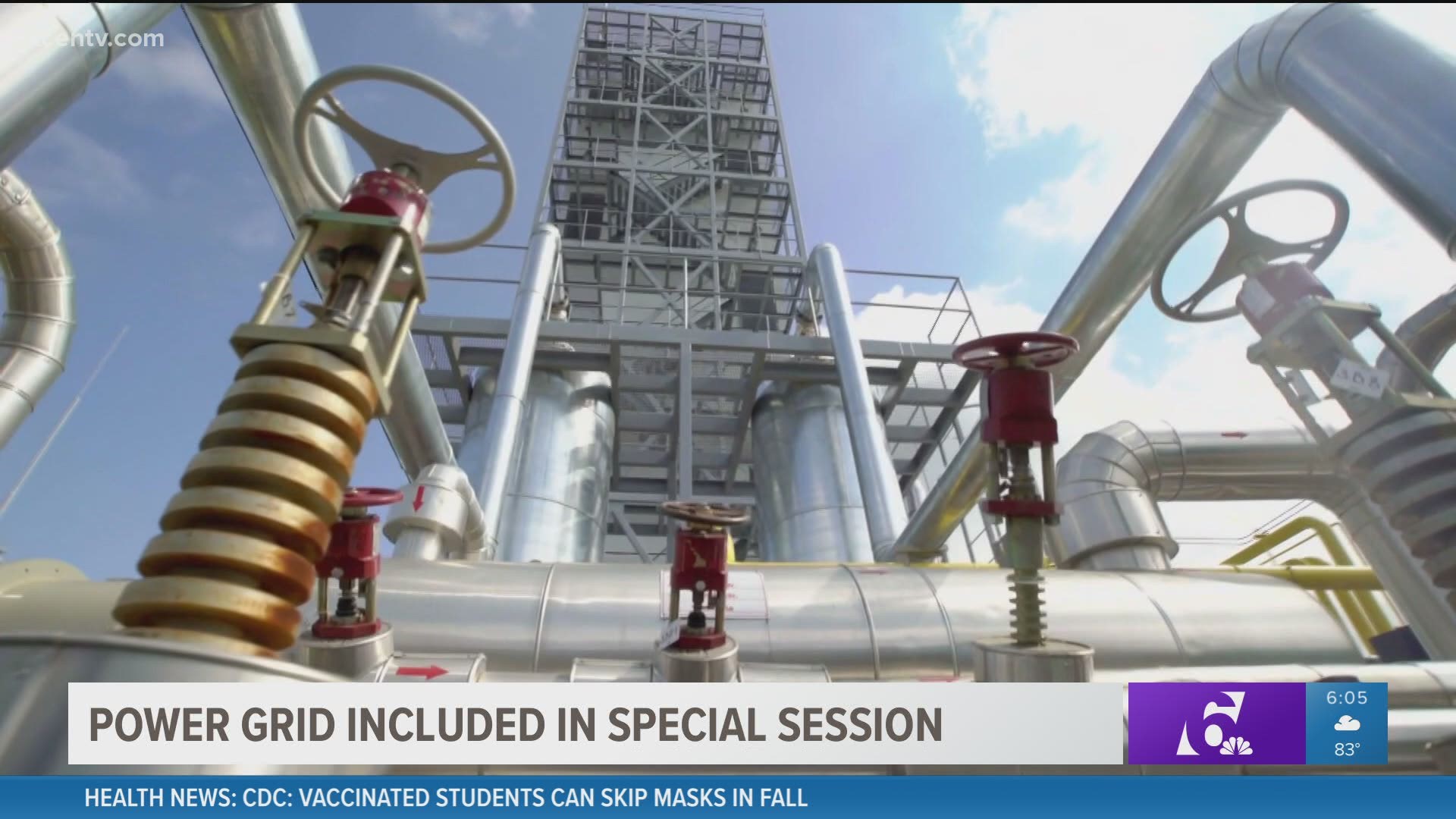TEMPLE, Texas — On Tuesday, Gov. Greg Abbot sent a letter the the Public Utility Commission (PUC) directing them to take immediate action on four key points of grid reliability. Two days later, both the PUC and ERCOT responded to that letter, agreeing to the importance of what the governor was asking them to do.
But can the PUC actually do the things the governor requested?
Temple Generation CEO Daniel Hudson, who manages a natural gas plant, told 6 News Friday the actions the governor requested would require fundamental market changes to get done.
The governors request had four main bullet points:
- Streamline incentives within the ERCOT market to foster the development and maintenance of adequate and reliable sources of power, like natural gas, coal and nuclear power.
The Texas Energy market is, in many ways, the opposite of streamlined for natural gas plants, which makes up more than 50 percent of the grids' available power and are the main source of power when the grid is in trouble. Power generators bid every day on how much power they will provide the next day.
Power prices change multiple times an hour. Each power plant must do a calculation of how much it will cost to run for the next 24 hours, what the anticipated market price for the energy will be, and whether it will be worth it to turn on and make a bid. Some power plants take 18 to 24 hours to start up and must forecast revenues well in advance to see if it is worth their time.
Some plants, called "peaker plants," can turn on quickly when the price of energy spikes to take advantage. When the grids' power reserves go under 3000 Megawatts, there is a price added to the existing power price to give plants more incentive to turn on.
This market is called an "energy market" because prices are always changing and profit is always based on those prices. To make the market less volatile, Hudson said the market needed to add something called a "capacity payment," which could cover a power plants operating costs while it is on, making the revenue predictions more stable.
"To keep some of the generators on, yes, you are going to need a capacity payment. To attract new generation, you are going to need a capacity payment," Hudson said.
Simply put, companies are going to need some assurance they are going to make money consistently before they invest millions in building new power plants. Adding a capacity payment would mean a fundamental switch for hour the market currently operates.
- Instruct ERCOT to establish a maintenance schedule for natural gas, coal, nuclear and other non-renewable electricity generators to ensure that there is always an adequate supply of power on the grid to maintain reliable electric service for all Texans.
The governor directed the PUC to create a maintenance schedule for gas, coal, and nuclear to prevent artificial power shortages when plants go offline. Hudson said, under the current market setup, this is simply not possible.
Texas has around 90 "thermal" plants (gas, coal, nuclear). Hudson said power plants must schedule two large maintenance periods each year to be ready for summer and winter and those are scheduled around 45 days out.
But, if plants have something break or face the possibility of equipment failure, they will go offline with sometimes 48 hours, or even 24 hours, of notice at a time to fix.
Furthermore, plants only bid on providing energy one day in advance, every day, and may chose not to run the next day if they don't make money. Hudson said it is impossible to make a functional schedule with so many generators making independent decisions about when to go down due to maintenance, or low prices (meaning the won't make money), one day at a time. Generators would need more incentives to run for multiple days for this to change.
- Allocate reliability costs to generation resources that cannot guarantee their own availability, such as wind or solar power.
When gas, coal and nuclear plants go down during a day when they had told the market they were going to provide power, they must pay back the cost of the power they failed to provide. When wind and solar power generators fail to provide power, they do not face such a cost. Abbott said in his letter, "this creates an uneven playing field between non-renewable and renewable energy generators and creates uncertainty of available generation in ERCOT."
Hudson does not manage any wind or solar generators. He believed this would put more pressure on wind and solar to perform, but wasn't sure if requiring the companies to pay when they missed a forecast would be beneficial to the grid or not.
"If I was a wind generator it would be very difficult to schedule every single hour and then make a commitment to buy back the power I didn't generate," Hudson said. "It's going to hurt wind development, but it's unknown if this stick to the renewable generators is going to help the market or hurt it."
- Order ERCOT to accelerate the development of transmission projects that increase connectivity between existing or new dispatchable generation plants and areas of need.
Hudson said ERCOT generally does a good job handling transmission projects and he was uncertain as to what this point was meant to address. He said the permit process for such projects takes a lot of time but it's not clear what could go faster.
Hudson told 6 News the one of the core issues the Texas power market faces is the growing power demand. When the market was originally created, Hudson said Texas had enough power generation to make an energy market (market based on changing power costs) work. When there is not enough power generators, the state may need to switch to a capacity market (market that pays generators a minimum price to run) to incentivize bringing new plants online.

